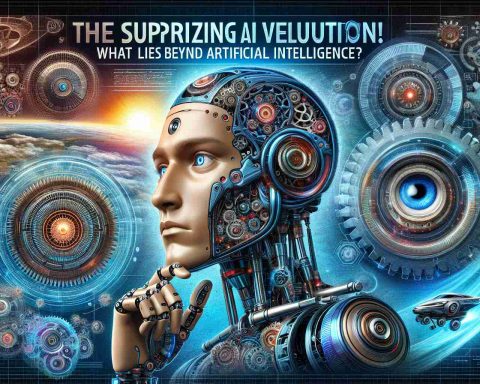In a rapidly evolving technological landscape, the conversation around Universal Basic Income (UBI) is gaining momentum, fueled in part by predictions from tech visionaries like Elon Musk. With the acceleration of automation and artificial intelligence, Musk has repeatedly voiced concerns about job displacement and income inequality, proposing UBI as a viable solution for societal balance.
Automation and Workforce Changes
As machines and AI take on more tasks traditionally performed by humans, the potential for significant workforce shifts becomes apparent. Musk suggests that within the next few decades, industries could be overwhelmingly automated, leading to substantial job losses in sectors ranging from transportation to manufacturing. This prediction isn’t just theoretical; advancements in technology are already reshaping job markets worldwide.
A New Economic Model
UBI proposes regular, unconditional payments to citizens, ensuring a safety net amid these transformative changes. Advocates argue it could provide a baseline security, empowering people to pursue education, entrepreneurial endeavors, or care responsibilities without the looming threat of poverty. Critics, however, question its feasibility and long-term economic impacts.
Future Implications
In anticipating a future where work as we know it might drastically change, Musk’s focus on UBI highlights the need for proactive policy-making. This narrative urges governments and societies to start planning now, exploring sustainable funding models and societal benefits, to ensure everyone thrives in the coming era of unprecedented technological change.
As discussions continue, the idea of UBI could transition from speculative to essential, shaping how future generations interact with technology-driven economies.
The Unforeseen Ripple Effects of Universal Basic Income
Universal Basic Income (UBI) is increasingly becoming a beacon of hope in the face of looming job displacement due to automation. Beyond the economic safety net it provides, UBI’s implementation could have wide-ranging impacts on societal structures and individual lives.
Societal Shifts and Community Dynamics
While UBI is largely lauded for financial stability, its true power may lie in altering community dynamics. By liberating individuals from financial stress, people might engage more actively in community projects, volunteerism, and local governance. This could foster a new wave of civic participation and social cohesion, potentially reducing crime rates and boosting community health.
Psychological and Social Well-being
On a personal level, receiving a basic income can alleviate the anxiety associated with precarious employment. This improved well-being might translate into better mental health outcomes and increased satisfaction with life, allowing people to break free from the relentless grind of surviving paycheck to paycheck.
Controversies and Challenges
However, UBI is not without its controversies. Questions arise about the potential for inflation, or whether people might lose motivation to work. Moreover, how sustainable is UBI without imposing exorbitant taxes? The balancing act between economic growth and fair income distribution remains precarious. Could economies withstand the potential shifts in labor incentive structures?
The Road Ahead
As these debates persist, the conversation around UBI continues to engage economists, policymakers, and citizens alike. It represents a crossroad—between clinging to traditional economic structures or embracing innovative models that promise inclusivity. As we explore link name and link name, UBI underscores a critical discussion on the ethics and practicality of wealth redistribution in a rapidly advancing world. How nations respond could redefine future socio-economic landscapes entirely.

















